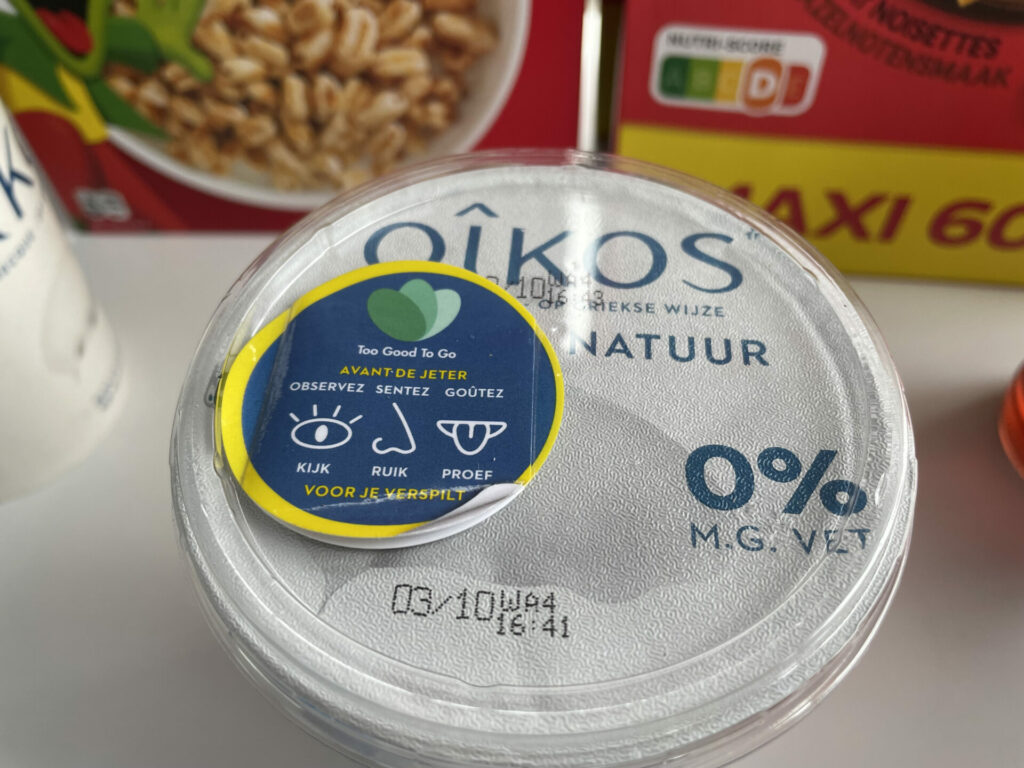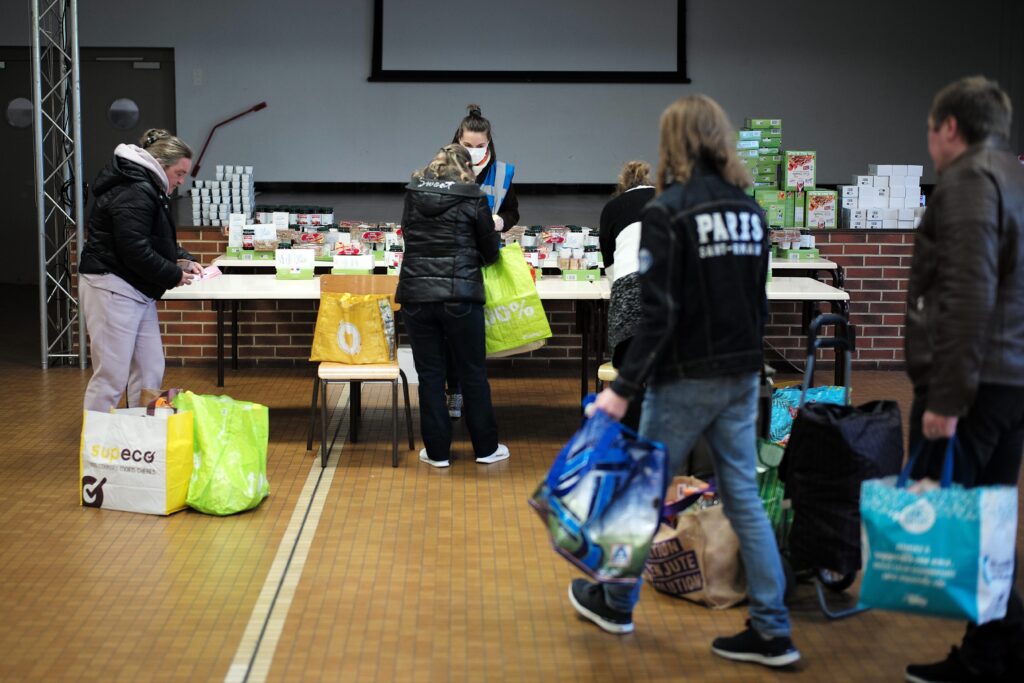Food waste applications such as Too Good To Go have shot up in popularity in recent years, thanks to their perceived value for money and sustainable ethos. But does the second shot at sale divert resources from charities that distribute food to society's most vulnerable?
Sustainable business initiatives Too Good To Go and Happy Hours Market have taken Brussels by storm, with Carrefour selling over two million food packages via the former platform since 2018. The Danish startup allows users to connect with restaurants and supermarkets to buy food near to or just past its selling date for discounted prices.
Belgium-specific site Happy Hours Market operates in the same way. Both companies brand themselves as a means of combatting food waste whilst saving money.
However, non-profit organisations and charities which distribute food to people in need are less convinced by the seemingly noble mission of the apps. "The food they sell is not intended to be thrown away, it is initially intended to be collected and distributed to those who need it," coordinator of LOCO, a network of 150 distribution organisations, Pauline Duclaud-Lacoste told L'Echo. "The little we received was diverted by these structures."
The exact impact is difficult to quantify but the difference on the ground is obvious, says Pauline Duclaud-Lacoste, whose organisation Feed The Culture has helped over 25,000 people in the past three years. "I used to distribute 10 boxes a week. Now I only have one."
'Responding to demand'
Food-sharing platforms have dismissed the criticism and insist they are responding to a demand. "There are a lot of people who are struggling to make ends meet and who don't have access to these associations, which require certain entry criteria," stated Happy Hours Market spokesperson Marcel Hulin.
"This food would be going into the bin if we weren't there because charities don't always have the means to collect unsold goods."
The sharp effects of inflation and a cost-of-living crisis have drained vulnerable parts of society and the lower middle class. Combined with deepening poverty since the Covid-19 pandemic, financial difficulties have led more people to rely on charity and/or low-cost initiatives. Figures released by the Belgian Federation of Food Banks show that 209,450 people applied for food aid at the end of 2022 – an increase of 15% from 177,238 people at the beginning of the year.

A Too Good To Go 'look, smell, taste' label. Credit: Belga / Nils Quintelier
Happy Hours Market has in the past donated surplus goods originally purchased from supermarkets, an initiative that rankled rather than appeased charity organisations. "We became their dustbins. They gave us the unsold items from the unsold items", said Duclaud-Lacoste.
A way out
Politics might offer a route away from disagreement on the ground. In July, Brussels Welfare Minister Alain Maron announced a regulation that would come into force in 2024 whereby Brussels will require large supermarkets in the region (with a surface area of more than 1,000 m²) to donate their unsold edible food.
The new rule will affect more than 100 supermarkets in Brussels and will require retailers to uphold agreements with charities rather than pull out at the last minute – not uncommon given the financial incentives on offer elsewhere. It also foresees the implementation of "logistics platforms", which will connect charities with supermarkets. After the charities have had first pick of available products, companies such as Too Good To Go and Happy Hour Market will be able to access the same platform.
"Considering that 70,000 people in Brussels alone rely on food aid, it is unacceptable that we are still throwing away tonnes of edible food," said Maron. An estimated 10,000 tonnes of food is thrown away every day in Belgium.

